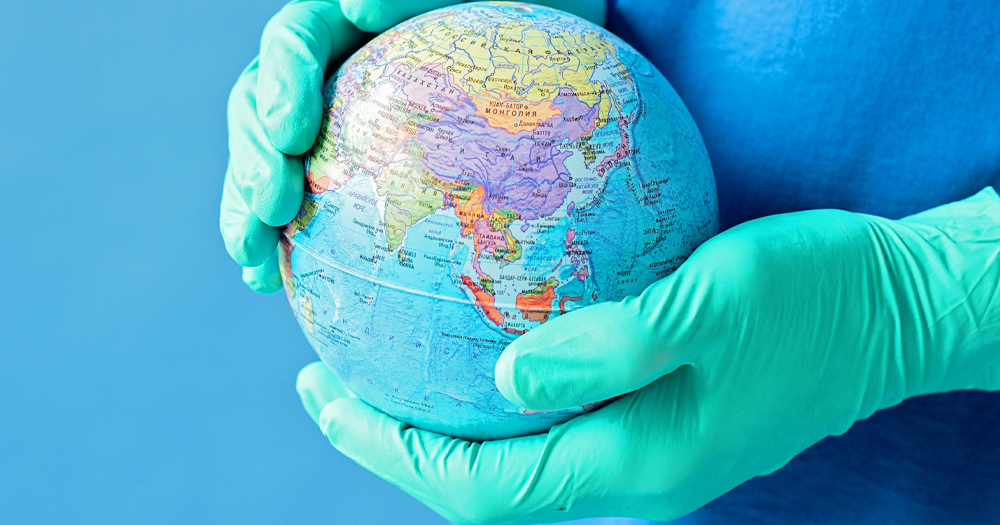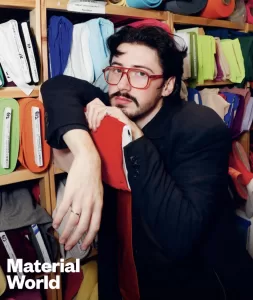Amid devastating wars, natural disasters and displacement crises, humanitarian efforts around the world aim to provide support to those most in need. LGBTQ+ people have additional layers of vulnerability and face specific challenges in humanitarian crises and emergency situations.
Across the globe, a solidarity movement is calling for an end to Israel’s genocidal assault on Palestine, which has turned the Occupied Territories into the deadliest place for civilians in the world. In Ukraine, the Russian invasion that began in 2022 is still ongoing, with reports of war crimes surfacing as the military continues its indiscriminate attacks on densely populated areas. Sudan is facing what the UN has deemed the world’s largest displacement crisis, with the number of people who have been forced to flee hitting 11 million. Natural disasters triggered by extreme weather and climate conditions have affected billions of people in several parts of the globe.
These are but a few examples of the humanitarian crises that are currently taking place around the world. Defined as emergency situations that affect an entire community or a group of people in a region, humanitarian crises can be triggered by political events, such as armed conflicts, coups, ethnic and religious persecution; or environmental catastrophes like tsunamis, earthquakes, fires and typhoons.
In such contexts, where humanitarian support can mean the difference between life and death, some risk being left behind. LGBTQ+ people, for example, share vulnerabilities that are common to the wider population, but they also face specific challenges in relation to their identities.
To have a better understanding, I spoke to Amie Bishop from Outright International, a human rights organisation that is working on queering humanitarian action to ensure that the needs of the LGBTQ+ community are met during emergency situations. Partnering with Edge Effect, the organisation has recently published They Know What We Don’t, a report that looks at meaningful LGBTQ+ inclusion in humanitarian action.
“It’s important to understand that a lot of the challenges that LGBTQ+ people face in the context of humanitarian crises have a lot to do with the pre-existing situation in those contexts,” Amie explained.
When a humanitarian crisis is triggered, pre-existing stigma and discrimination may hinder LGBTQ+ people’s ability to access support amid an already hostile sociopolitical context. “If you look at several phases of crisis, pre-emergency marginalisation often results in LGBTQ+ people lacking opportunities for economic resilience, for education, and so this already puts them a step back.”
Such circumstances can affect people’s access to the support offered by humanitarian actors, especially in contexts where same-sex relations or diverse gender identities are criminalised. “Direct and indirect discrimination may lead to the exclusion of queer people from protection and aid distribution, and it can also lead to queer people self-excluding out of concern or fear that they may not be treated with respect,” Amie said.
In contexts of forced displacement, the situation of LGBTQ+ people is particularly precarious, as they end up embodying several of the most stigmatised characteristics today. Being a queer person in a cis-heteronormative environment and having a stigmatised immigration status can leave people especially vulnerable to social discrimination, institutional marginalisation and even familial abuse.
When LGBTQ+ people are internally displaced in countries that criminalise same-sex relations or diverse gender identities, they’re also rarely addressed by the very institutions that are meant to support them during these crises. Moreover, they often face harassment from immigration officials or issues related to their identification documents.
Shelters and camps are often unsafe for LGBTQ+ people, as they may face danger or harassment in gender-segregated spaces such as toilets and sanitation facilities. For trans and intersex folks, the lack of privacy in such spaces also puts them at higher risk of violence and discrimination.
Disruption in the healthcare systems also leaves groups within the LGBTQ+ community, such as trans, intersex and HIV positive people, particularly vulnerable due to the lack of access to treatments and drugs. “There are particular challenges for trans people who may also lose access to gender-affirming care, access to hormones. Similarly for intersex people, who rely on a system of care and support that may be broken.”
Another thing that LGBTQ+ people lose access to in emergency situations is community. Those informal community networks that are often a lifeline for queer people, especially in contexts where they face discrimination and abuse from the wider society and their own families, are lost. Disasters and crises destroy safe spaces and force people back into situations that are dangerous to their physical and mental health.
What’s more, in some instances, the humanitarians’ lack of awareness of LGBTQ+ identities can lead to further discrimination. “Another aspect of this has to do with the way resources are distributed, whether it’s food packages or hygiene packs or different kinds of support,” Amie explained.
She recalled a situation of protracted emergency in the Philippines during the Covid pandemic. “The distribution of food packages was based on heteronormative family structure. So we had several testimonies from lesbian couples who were denied food packages because of the fact that they didn’t have a male in the household.”
Amie pointed out, “A lot of the resistance on the part of humanitarian organisations is not necessarily always about discrimination or discomfort or stigma. A lot of times, it’s because they’re concerned about doing harm, about not knowing how to effectively and safely work with our communities, and so that creates a stalling of action.”
This lack of awareness is where humanitarian action needs to be improved. In its report, Outright International highlighted how meaningful inclusion of local LGBTQ+ organisations and networks can go a long way in addressing the needs of the community. “The first point of action is to understand what the needs and priorities and strengths even of the community are so that they can be meaningfully included,” Amie said.
“We know through our work in Outright that there are organisations and activists and advocates pretty much almost in every setting,” she continued. These are the ones who are most aware of what their communities need and how to provide that. “If you can really meaningfully engage with these organisations, they will guide. They will show the way to do this work safely, because they, more than anyone else, know how to do this.”
Sharing a positive example of how inclusion has taken place, she spoke about the organisation’s work in Ukraine, where it reached out to several humanitarian bodies like the UN and international NGOs to create opportunities for partnership with local LGBTQ+ organisations.
“We’re facilitating a space for the community actors and humanitarian actors to come together and learn about each other and how to work better together.”
They organised Ukraine’s first-ever National Forum for LGBTQ+ inclusion in humanitarian response, where humanitarian actors and community groups could come together, learn from each other and share resources.
“And since that time, the UN humanitarian system in Ukraine has agreed to formalise an LGBTQ+ communities working group, which is the first formal mechanism in the country. And actually, there aren’t that many in the world that create a platform for LGBTQ+ communities to share what they need, what resources they are lacking.”
This work is vital to ensure that LGBTQ+ people can safely access humanitarian support. “One of the humanitarian principles is neutrality and impartiality,” Amie said.
“Sometimes our impression is that this gets used to say, ‘We can’t treat any one population differently from another’. But the fact of the matter is that humanitarians have an obligation to meet the needs of all people who are affected by crisis. And one approach is not going to work for all these different kinds of populations.”
© 2025 GCN (Gay Community News). All rights reserved.
This article was published in the print edition Issue No. 387 (December 13, 2024). Click here to read it now.
Support GCN
GCN is a free, vital resource for Ireland’s LGBTQ+ community since 1988.
GCN is a trading name of National LGBT Federation CLG, a registered charity - Charity Number: 20034580.
GCN relies on the generous support of the community and allies to sustain the crucial work that we do. Producing GCN is costly, and, in an industry which has been hugely impacted by rising costs, we need your support to help sustain and grow this vital resource.
Supporting GCN for as little as €1.99 per month will help us continue our work as Ireland’s free, independent LGBTQ+ media.

